metro
Herdsmen crisis: 28 killed in Ogun, residents flee to Benin Republic

No fewer than 28 lives have been lost in various communities in Yewa North Local Government Area, Ogun State in the last one week or thereabout as a result of deadly attacks believed to have been carried out by herdsmen. The attacks and the resultant deaths were in spite of repeated assurances of protection by the state government and security agencies.
Prompted by the spate of attacks, many villagers from the affected areas have deserted their homes. Some of the affected villages include Agbon-Ojodu, Moro, Asa, and Ibeku.
When The Nation visited the area during the week, residents were seen moving out in droves for fear of another round of attack. At Asa, the ruins of the bloody attack stared one in the face as a few of the residents who came out of hiding on sighting our correspondent lamented their woes.
Some bullet cartridges allegedly belonging to the herders littered the ground.
A man was sighted moving his family on his motorbike out of the village. The man, who asked not to be named, said he was moving his family into safety at an undisclosed community in neighbouring Republic of Benin.
He said: “I only escaped death by a whisker. But for Providence, I would have been dead by now. I don’t want to push my luck too far, so I have decided to relocate my wife and children to a village in the Republic of Benin where herdsmen are not allowed to do open grazing.
”Even if I stay back here, there is nothing to live on again. My farmland has been destroyed by these marauding herders. I am happy that I am leaving with my life intact.”
Hostilities between herdsmen and residents of about 29 agrarian communities in this part of Ogun State dates back to 15 years. The affected villages had been attacked recent times by terror herdsmen who were said to have camped at Eggua, a neighbouring town from where they moved with their hordes of cattle, ravaging farmlands within the Ketu-Yewa communities, which share borders with the Republic of Benin.
The villages are Ateru, Moro, Ologun, Agbon-Ojodu, Asa, Igbota, Ogunba-Aiyetoro, Oke-Odo, Ibore, Gbokoto, Iselu, Ijale, Ohunbe, Igbeme, Owode-Ketu, Igan-Alade, Lashilo, Oja Odan, Ijoun, Ateru, Moro, Ologun, Iyana Meta, Igbooro, Egbeda and Kuse, among others.
The armed herdsmen, who usually lead their flock in search of pastures because of the rich vegetation in the Ketu-speaking villages, have also been fingered in the destruction of cash crops belonging to the native farmers as well as killings and raping of women who are mostly natives of the communities.
The face-off peaked late last year when the residents prevented the herders from grazing and banished them from the communities.
The Nation had exclusively reported how some soldiers attached to 35 Artillery Brigade, Alamala, Abeokuta, later escorted the herders to the villages and openly flogged residents for rejecting them.
In a bid to discountenance the report, the soldiers again visited the communities a week after the story was published asking the victims to recant, but the brutalised residents refused.
Chronicle of attacks
Investigation conducted by our correspondent revealed that in the last couple of days, some of the villages mentioned in the report have been raided and destroyed by the herdsmen.
The well-coordinated attacks started with the killing of a farmer, Dele Owoniyi by suspected herders on February 7 at Oha village in Imeko area around 1 am. Several buildings and farmlands were destroyed by the hoodlums.
It was said that the herders, who were armed with guns and machetes, immediately left for Iwoye-Ketu after carrying out the attack. Four days later, two persons were allegedly killed on Thursday, February 11 by herdsmen who stormed Owode-Ketu village.
The victims – Isiaka Apesin and Adebayo Oguntosin, among other travelers, were said to have been ambushed by the herders along Owode Ketu-Ijoun axis, who bolted into a nearby forest after killing the villagers.
The attack, according to sources, was carried out by the herders around 5 am. It was learnt that the bodies of the victims were evacuated from the scene of the attack by men of Eggua Police Division.
The next day, Friday February 12, Imotto Orile witnessed the rage of the pastoralists who shot one resident dead and hacked another one to death. Same day, in the dead of the night, the herders took their bloody attack on innocent residents to Orile-Igbooro, where they killed six villagers and set houses and vehicles ablaze, while about 15 villagers, including children, sustained varying degrees of gunshot wounds.
Three farmers were said to have been killed on Sunday, February 14 when herdsmen stormed Agbon-Ojodu village shortly after the state’s Commissioner of Police, Mr. Edward Ajogun, visited the area.
The police commissioner, who visited some places in the troubled areas, including the palace of the Olu of Ilaro and paramount ruler of Yewaland, Oba Kehinde Olugbenle, had promised adequate security of lives and property. But a few minutes after commissioner and his team left the area, the suspected herdsmen struck and killed three farmers.
Also in the dead of the night on Sunday, February 14, the herders struck at Ibeku and Asa villages (the same communities where soldiers escorted herders to brutalise residents for rejecting herdsmen on December 19 last year, killing six persons, including one Kehinde Gbadamosi whose body was set ablaze.
According to sources, the hoodlums had dragged Gbadamosi, an indigene of Oyo State, out of his house and killed him before they threw his body back into the house and razed the building.
On Monday, February 15, they moved to Ijaka-Oke and Ijaka-Isale in broad daylight and started shooting at anything in sight. By the time the smoke from their guns receded, eight villagers had been dispatched into early graves while more than 16 commercial motorcycles were set ablaze.
By the evening of the same day, they moved to Oke-Akanni and Oke-Imala villages in Ayetoro where an unspecified number of residents were killed and buildings set ablaze.
The attacks occurred few minutes after Governor Dapo Abiodun visited Oja Odan and other communities in the area with members of his cabinet and heads of security agencies for on-the spot-assessment and assured the villagers of their safety with the deployment of a special police squad to tackle the herders.
The governor said: “The delegation I sent told me what they saw. They said a lot of things happened, and as they were giving the report of what they saw, we heard that another attack happened.
“I called a security meeting this morning. And before yesterday, I had set up a task force and bought new vehicles and motorcycles for Yewaland security. The task force consists of police, soldiers, civil defence corps and hunters to help us in terms of security in your area.
“Tomorrow, by God’s grace, all the new vehicles and motorcycles will be released. The task force will be stationed here; they will not only patrol your areas and go back to Abeokuta,” he assured the people.
Abiodun also promised to foot the hospital bills of those who were injured by herdsmen, pledging to help those who lost their property during the attack by cushioning the effect of the loss.
In the early hours of Wednesday, February 17, the herders once again struck at Ilogun Orile village where they were said to have killed unspecified number of residents.
A villager said the herders embarked on a shooting spree as soon as they stormed the community in a commando-like fashion, killing people and destroying properties worth millions of naira.
He said, “After killing our people, they broke into residential buildings, stole their belongings and looted shops. They raided a phone shop, carted away several expensive phones and set the shop ablaze. A lot of our people have left for villages in Benin Republic for fear of being subjected to another attack by the mindless herdsmen.
”They brought out Gbadamosi aka Big Daddy from his house and killed him before setting his body ablaze. As you can see, his huge body has become charred from the fire.”
Monarchs, lawmakers, residents lament
Lamenting the development, the Olu of Ilaro and Paramount ruler of Yewaland, Oba Kehinde Olugbenle, raised the alarm on February 13 that armed herdsmen were plotting to attack key communities in Yewa area.
Oba Olugbenle said the plan of the armed herders was to hold the targeted villages down in terror as they had done in remote villages in the last one week.
In a statement, the monarch urged President Muhammadu Buhari, the state government and security agencies to contain the sustained siege on Yewaland by armed herdsmen, noting that there had been the loss of lives, outright slaughtering of people, maiming and destruction of property by the herders.
The monarch appealed to President Muhammadu Buhari, Governor Abiodun and the security agencies to rise up as a matter of “extreme urgency” to their constitutional duties of securing lives and property by coming quickly to help, protect and defend them from the marauding herders.
The statement reads in part: “The criminal and dangerous activities of these herdsmen have so far happened in Egua, Oja-Odan, Igan Alade, Gbokoto, Ijoun, Owode Ketu, Ebute Igbooro, Imeko Afon and other places with reports of plans to attack major towns in Yewa land.
“The Federal Government and the state government are hereby implored, as a matter of extreme urgency, to act fast to secure the lives and properties of our people before it spirals out of complete control.”
In his remarks during the visit of Governor Abiodun to the communities, the Eselu of Eseluland, Oba Akintunde Akinyemi, said the people of the affected communities were demanding that the governor give an order for the eviction of Fulani herdsmen from the land.
He said: “The herdsmen are killing our people seriously. They are killing our people in Ketuland, they raped our women, they destroyed our silos.
“They have killed a lot of our people in Ketu, Igbooro, Iselu, Agbon-Ojodu, Asa, Ibeku and Oja-Odan. Within five days, the Fulani (herdsmen) have killed five persons in Igbooro, three in Asa, making eight. Your Excellency, our people have regards for you and they know that you will be just.
“I know that if not for the governor, if we ask our people to face Fulani, there will be war. Due to this, we want the paramount ruler in Yewa to support us while we want the governor to give an order that Fulani should not come to Ketuland again.”
Lamenting the gruesome killings, a member of Ogun State House of Assembly, Hon. Wahab Egungbohun, condemned the murderous activities of criminal herders, noting that that the alleged murderous activities of criminal herders appeared to have peaked lately.
Reacting to the development, the senator representing Lagos West Senatorial District, Solomon Adeola, urged the Federal Government to stop the deadly attacks on Yewa communities by herdsmen.
The lawmaker, who is a native of Yewa land, said citizens have the right to self-defence, noting that the government had failed to respond to the attacks suffered in the communities.
In a statement issued by his Special Adviser on Media, Kayode Odunaro, Senator Adeola said the inaction of the Federal Government was responsible for the mindless attacks on villages in Yewa North, Imeko, Afon, Ipokia and Yewa South local government areas.
He said: “I recalled that on various occasions on the floor of the Senate, I contributed to debates on the deteriorating security situation in different parts of the country and was always agitating for restructuring of the security architecture of the country.
“I made a similar contribution to a senate-wide motion on general security only last week. Now, something specific must be done urgently to stop the arson and killings in Yewaland by relevant authorities and security agencies.”
Condemning the killings, a former member representing Yewa South/Ipokia Constituency in House of Representatives, Hon. Adekunle Akinlade, suggested the deployment of surveillance drone to identify and track the herders.
He said: “The spate of killings across Ogun West, be it by men of the Nigeria Customs Service, bandits or criminal herdsmen, is evident of lack of preparedness for governance and lack of clear cut strategy on the part of the current chief security officer of the state.
“In my modest opinion, the CSO of the state should, as a matter of urgency, personally visit the affected villages and farming communities, commission the deployment of at least 50 high frequency aerial surveillance drones with night/infrared capabilities across those communities.”
Akinlade added: “The government should request from relevant federal authorities the deployment of a joint task force security patrol comprising the armed forces and the police.
“It is common knowledge that the cheapest and most efficient way to manage insecurity is to deploy deterrent mechanisms such as security tech hubs, communal intelligence gathering and leading from the front.”
Restraining order not enforced as northern governors visit
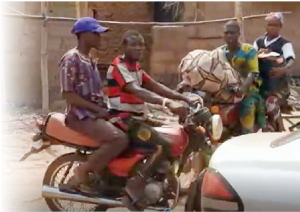
A community leader, Ishola Ademola, said the police and state authorities had failed to enforce a restraining order granted against the herders in 2007, by a State High Court sitting in Ilaro.
“We got an injunction restraining herdsmen from grazing in our communities following their destructive and deadly activities-killings and raping our women as well as ravaging our farmlands,” Ademola said.
The suit was filed by some monarchs and community leaders-Oba G.A. Olukunle; Oba Joseph Akinyemi; Chiefs Mathew Olukokun; Sabiu Bamgbola; Elijah Ayodele;Edun Samuel; A.A.Ayodele; Jimoh Abisekan; Olalekan Akintan; Ajana Fatosa and Rev. Enoch Korole.
The defendants were the Sarkin Fulani of Eggua, Alhaji Ibrahim Adamu Oloru and his deputy, Alhaji Ibrahim Usman.
In the ruling issued on November 1, 2007, the presiding judge, Justice M.A Dipeolu, held that the conduct of the herdsmen were unjustified and against the convenience of the residents.
The judge said: “The respondents and members of Fulani community in Yewa North Local Government Area of Ogun State are hereby restrained whether by themselves, servants, agents, privies or howsoever called, from going into or grazing their cattle or carrying out any activity whatsoever on the land situate, lying and being at Gbokoto; Isale; Pedepo; Ibayun; Abule Idi; Ohumbe; Igbeme; Asa; Ibeku; Iselu; Isiuku; Agbon –Ojodu; Moro; Agebelepon; Iyana Meta; Ikotun; Kobejo; Ijoko; Igbere; Alagbe; Agero; Ijege; Oke-Odo; Orobiyi; Korole; Abule Igbo; Ebute; Olope Meta; Okoso; Kodera; Abule Balogun; Iyalode; Abule Eyo; Orisada; Ogunba Ayetoro; Agbele; Gbedun; Sekeaje all of which constitute the Isale-Iselu community of Yewa North Local Government Area of Ogun State.
“The order has neither been set aside nor appealed by the leadership of the herdsmen. Unfortunately, the police and state government failed to implement the order despite several pleadings and appeals made to them,” Ademola said.
The Nation
metro
Edo Gov Okpebholo Joins Benin City Youths in Protest Over Power Outages
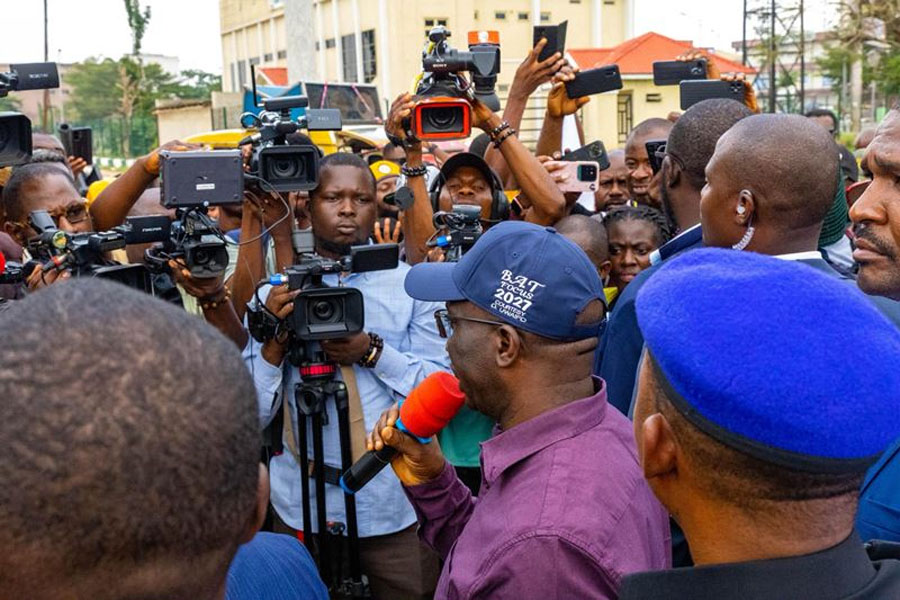
Edo Gov Okpebholo Joins Benin City Youths in Protest Over Power Outages
Benin City, Edo State — Edo State Governor Monday Okpebholo on Monday publicly aligned himself with youths and residents protesting persistent power outages and billing challenges linked to the Benin Electricity Distribution Company (BEDC). The protest took place at Ring Road in Benin City, with demonstrators carrying placards reading “We say no to BEDC oppression,” “No light, no bill,” and “Edo people say no to bulk billing.”
The protesters decried prolonged blackouts, estimated electricity bills, and what they described as the exorbitant cost of prepaid meters, which they say range between ₦150,000 and ₦400,000. Residents also questioned the transparency of BEDC’s free meter distribution initiative, urging the company to publicly disclose beneficiaries.
Governor Okpebholo, reportedly passing by the protest area, stopped to address the crowd. He expressed solidarity with the demonstrators, saying he stood with them “as fellow youths seeking fairness.” The governor acknowledged that electricity challenges affect both rural and urban communities in Edo State and appealed for calm while the government engages relevant stakeholders to find solutions.
READ ALSO:
- The world dislikes the weak, by Hakeem Baba-Ahmed
- Pastor, Wife Arrested in Bayelsa Over Alleged Rape of 13-Year-Old Girl
- DSS Busts Alleged Arms Trafficking Network in Gombe, Seizes RPGs
While clarifying that BEDC is privately owned and not directly controlled by the state government, Governor Okpebholo pledged that efforts would be made to tackle the residents’ concerns. He suggested liberalising the electricity distribution sector to attract new investors and reduce what he described as a monopoly. Drawing a comparison with the telecommunications industry, he noted that introducing more players would improve service delivery and provide consumers with options.
The governor also announced plans to convene a stakeholders’ meeting on Tuesday and urged the protesters to nominate five representatives to participate in discussions aimed at addressing electricity supply and billing issues.
Speaking on behalf of the protest group, Comrade Ogbidi Emmanuel said residents were compelled to act due to what they termed oppressive practices by BEDC. He emphasized the financial burden caused by prepaid meters and irregular billing, stating: “We pay for light and they give us darkness.”
Eyewitnesses reported that the protest remained peaceful, with security personnel ensuring order. The demonstrators dispersed following Governor Okpebholo’s address. As of press time, BEDC had not issued an official response to the claims raised by residents.
Edo Gov Okpebholo Joins Benin City Youths in Protest Over Power Outages
metro
Pastor, Wife Arrested in Bayelsa Over Alleged Rape of 13-Year-Old Girl

Pastor, Wife Arrested in Bayelsa Over Alleged Rape of 13-Year-Old Girl
YENAGOA, BAYELSA STATE — The Bayelsa State Police Command has arrested a pastor and his wife over the alleged rape of a 13-year-old girl in Yenagoa, the state capital.
The suspects were apprehended by operatives from the Ekeki Division during a Sunday church service. Eyewitnesses said the pastor initially fled through a back exit after sighting police officers but later surrendered himself when his wife was taken into custody at the church premises.
According to reports, the victim is a relative of the pastor’s wife. The teenager allegedly told investigators and members of the National Association of Women Against Gender Based Violence and the Do Foundation that the abuse occurred about five times beginning in November 2025.
The girl reportedly said the incidents happened whenever her mother sent her to deliver a local bread known as “madiga” to the pastor’s wife. On one occasion, when the wife was not at home, the pastor allegedly invited her inside the church, locked the door and assaulted her. She further alleged that similar incidents occurred on other visits to the pastor’s residence.
READ ALSO:
- HURIWA Warns of Alleged Foreign Media Plot to Undermine Tinubu Ahead of 2027 Elections
- Human Rights Lawyer Warns Against Targeting Children, Hospitals in U.S – Israel Military Action
- Several U.S. Warplanes Crash in Kuwait Amid Ongoing Iranian Strikes
The minor said she initially kept silent out of fear but later informed her mother after noticing she had missed her menstrual cycle. Following the revelation, the mother confronted the pastor and his wife.
Sources disclosed that the pastor’s wife allegedly handed the mother N120,000 to facilitate an abortion after a medical scan reportedly confirmed pregnancy. The mother was said to have been persuaded by a relative not to “destroy God’s house” at the time.
The matter, however, escalated during a church service where the pastor and his wife were reportedly heard thanking God for helping them overcome enemies allegedly trying to bring down the church. Feeling distressed by the public display, the victim’s mother later filed a formal complaint at the Ekeki Police Division.
She also petitioned the complaint unit of the National Association of Women Against Gender Based Violence, led by Dise Harry.
Confirming the development, the Bayelsa State Commissioner of Police, Iyamah Daniel Edebor, said the case has been transferred to the Gender Unit of the command for thorough investigation and possible prosecution.
Police authorities assured that due process would be followed in handling the alleged rape case in Bayelsa, emphasizing that offences involving minors are treated with seriousness under Nigerian law.
The incident has sparked reactions in Yenagoa, with some church members reportedly seen at the police station discussing the development as investigations continue.
Pastor, Wife Arrested in Bayelsa Over Alleged Rape of 13-Year-Old Girl
metro
DSS Busts Alleged Arms Trafficking Network in Gombe, Seizes RPGs
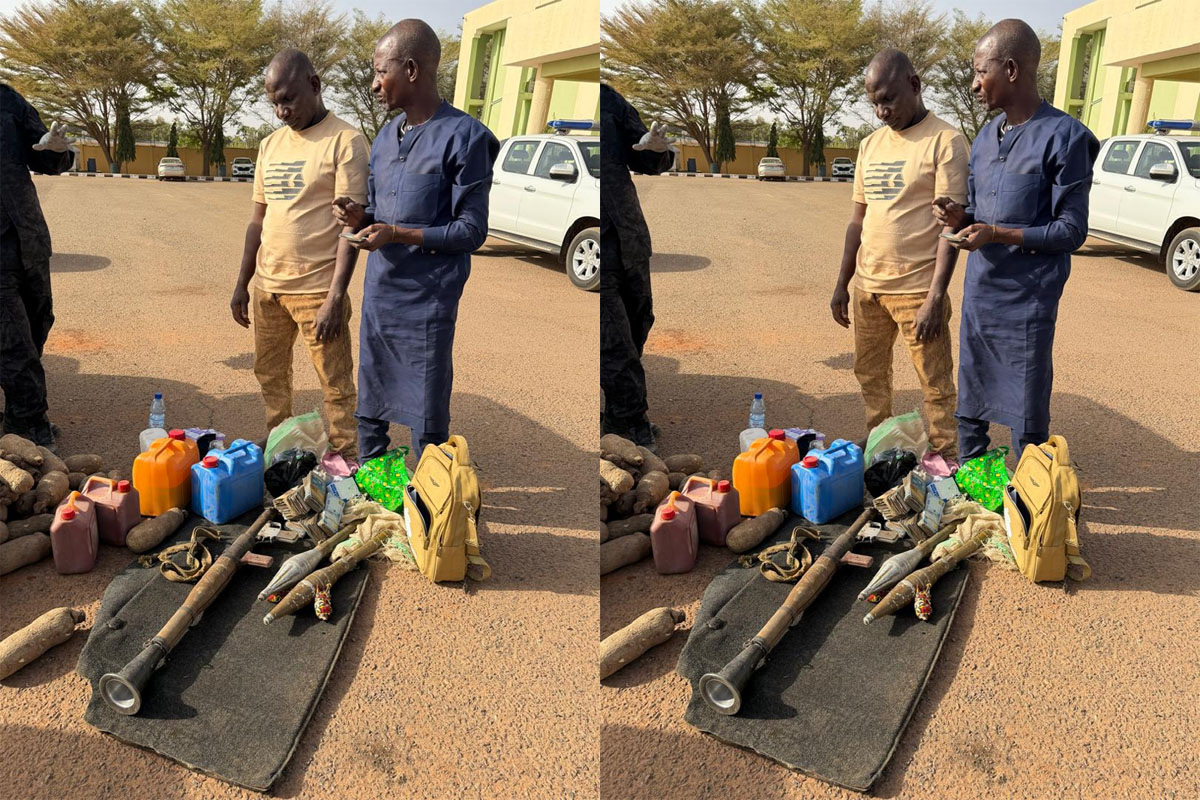
DSS Busts Alleged Arms Trafficking Network in Gombe, Seizes RPGs
Operatives of the Department of State Services (DSS) have arrested two suspected arms couriers and recovered rocket-propelled grenade (RPG) equipment during a security operation in Gombe State.
The suspects — Muhammed Alhaji Mohammed, 55, and Sani Gesha, 47 — were intercepted at Mararaban Tula in Kaltungo Local Government Area while travelling in a grey Toyota Corolla with registration number Taraba JAL475YQ. Security sources said the vehicle was stopped following weeks of intelligence-driven surveillance targeting an alleged bandit network operating across parts of the North-East.
During the operation, DSS operatives reportedly recovered two Rocket Propelled Grenade (RPG) warheads, an RPG launcher and other items believed to be linked to banditry and arms trafficking activities. Sources familiar with the investigation said the weapons were suspected to be part of a consignment intended for delivery to criminal elements operating in neighbouring states.
According to security officials, the arrests followed over three weeks of covert monitoring of a trafficking syndicate allegedly connected to a notorious bandit leader operating across Bauchi, Gombe, Taraba and Adamawa states. A source disclosed that the operatives monitored the group closely before launching a coordinated operation that led to the suspects’ arrest with what was described as a significant cache of arms and ammunition.
READ ALSO:
- HURIWA Warns of Alleged Foreign Media Plot to Undermine Tinubu Ahead of 2027 Elections
- Human Rights Lawyer Warns Against Targeting Children, Hospitals in U.S – Israel Military Action
- Several U.S. Warplanes Crash in Kuwait Amid Ongoing Iranian Strikes
Preliminary investigations reportedly revealed that the recovered weapons were meant to be delivered to one Ardo Hamma Ari, said to be a resident of Kukawa Village in Alkaleri Local Government Area of Bauchi State. Authorities are expanding investigations to track other members of the network and uncover the source and intended use of the weapons.
In a related development, DSS operatives also rescued a six-year-old boy, Mohammed Jabir, at Gyada Village in Talase, Balanga Local Government Area of Gombe State. Security sources said the child had allegedly been kidnapped by one Salisu Hussain under the pretext of teaching him how to ride a motorcycle.
Following a report by the family, DSS operatives launched a swift operation that led to the safe rescue of the boy and the arrest of the suspected kidnapper. The child has since been reunited with his parents, who expressed gratitude to the DSS for the prompt intervention and safe return of their son.
Security authorities confirmed that all suspects are currently in DSS custody and will be arraigned in court upon conclusion of investigations. Officials emphasized that the operation underscores ongoing efforts to combat illegal arms trafficking, banditry, and kidnapping in the North-East region, reaffirming the agency’s commitment to dismantling criminal networks and enhancing public safety.
DSS Busts Alleged Arms Trafficking Network in Gombe, Seizes RPGs
-

 International2 days ago
International2 days agoAyatollah Ali Khamenei, Iran’s Supreme Leader, Dies After U.S.–Israeli Strikes
-
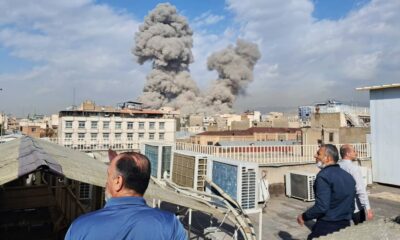
 International2 days ago
International2 days agoIran: US, Israel launch another strikes, Commander, Defence leader, five other top officials killed
-

 International3 days ago
International3 days agoMiddle East on Edge as Iran Retaliates Against Israel, U.S Bases
-

 International3 days ago
International3 days agoTrump Urges Iranians to Overthrow Government Amid US-Israeli Attacks
-

 International2 days ago
International2 days agoKamala Harris Slams Trump for Dragging U.S. Into ‘Unwanted War’ in Iran Conflict
-
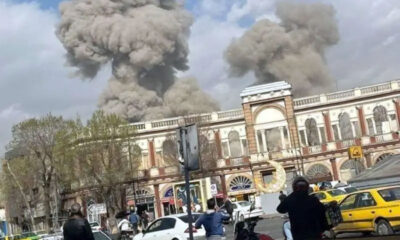
 International3 days ago
International3 days agoReports: US Forces Join Israeli Offensive Against Iran
-

 Opinion3 days ago
Opinion3 days agoOur children must be kept away from Obi’s mob
-

 metro2 days ago
metro2 days agoHajj, Umrah Are for Muslims Only – Scholar Urges NAHCON to Tighten Screening












You must be logged in to post a comment Login